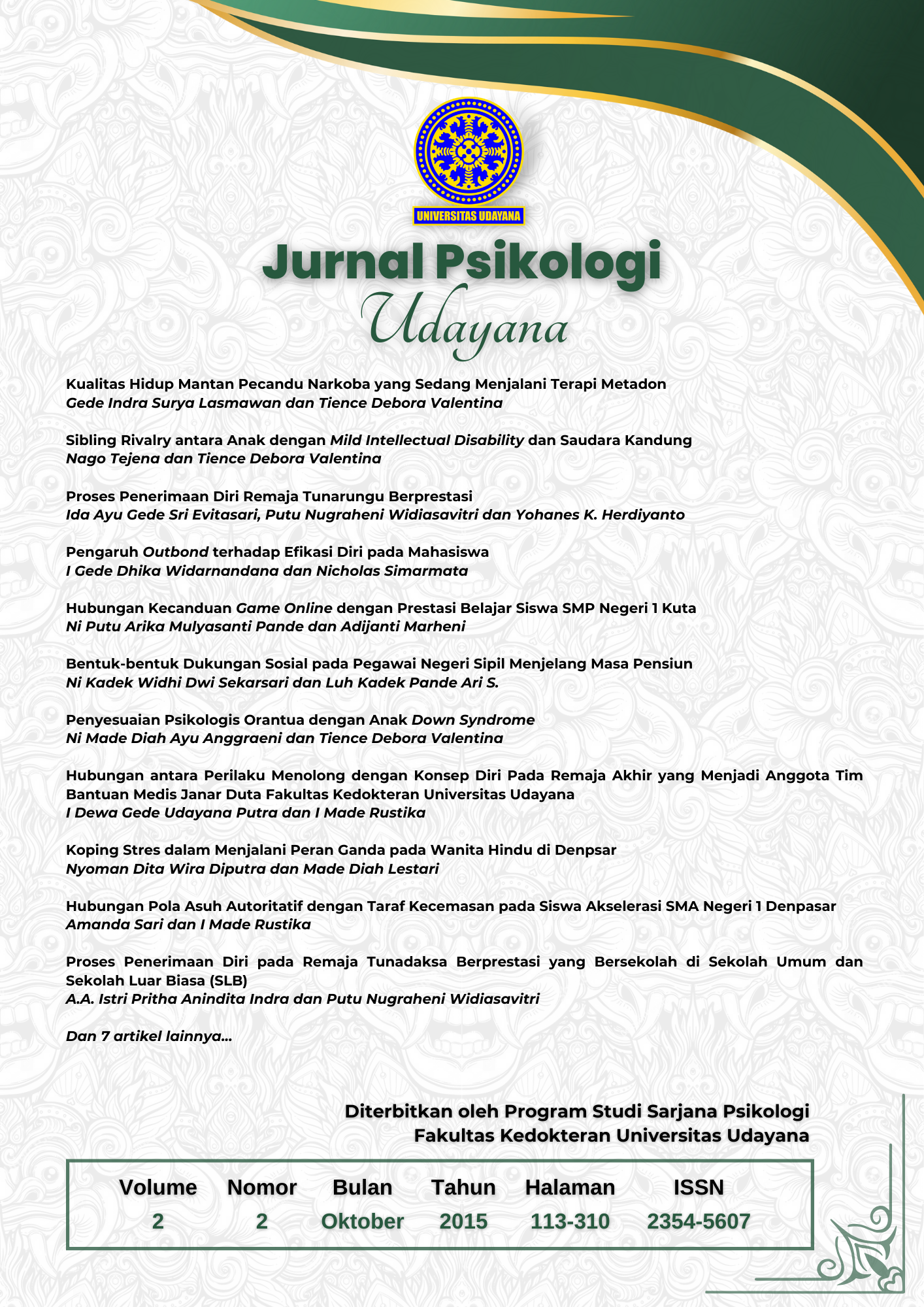PROSES PENERIMAAN DIRI REMAJA TUNARUNGU BERPRESTASI
Abstract
Deaf is a term that used to explained condition of individual who losing or disability to catch audio sensory through their hearing sense (Musyarrafah & Djalal, 2011). This condition contributes to some development aspect of human being, which is, social aspect and emotional aspect. Some of them successfully reconciled with themselves and accept their condition with a lot of great achievement. One of the others factor that drive deaf situation who shows an achievement is family assistance, however, uniquely there is a case in deaf who were not get physical assistance by their family and also can get great achievement. Aritama (2010) told that acceptance in any condition in self is the most basic thing if individual want to success and reconciled with state. Havighurst (in Sarwono, 2013) also adding that accept physical condition is one of the task in adolescence development. According that fact, this study would like to know self-acceptance in deaf adolescent who had achievement without physical assistance by their family.
This study using qualitative method and case study design. Collecting data in this study using interview, observation, and projective test to two deaf adolescence who had achievement without family assistance with different deaf history, that is, congenitally deaf and adventitiously deaf. To strengthened data study, this study used interview and observation to significant other of deaf adolescence.
Result in this study shows that deaf adolescent passing three phases in the process of self-acceptance, which proximal phase, conflict phase and accepting phase. The dynamics in every phase completely will be discussed based to the chronology of the life journey adolescence until they can accept their condition.
Keyword: self-acceptance process, deaf, achievement.
Downloads
Authors who publish with this journal agree to the following terms:
- Authors retain copyright and grant the journal right of first publication with the work simultaneously licensed under a Creative Commons Attribution-ShareAlike 4.0 International License that allows others to share the work with an acknowledgement of the works authorship and initial publication in this journal.
- Authors are able to enter into separate, additional contractual arrangements for the non-exclusive distribution of the journals published version of the work (e.g., post it to an institutional repository or publish it in a book), with an acknowledgement of its initial publication in this journal.
- Authors are permitted and encouraged to post their work online (e.g., in institutional repositories or on their website) prior to and during the submission process, as it can lead to productive exchanges, as well as earlier and greater citation of published work (See The Effect of Open Access).













